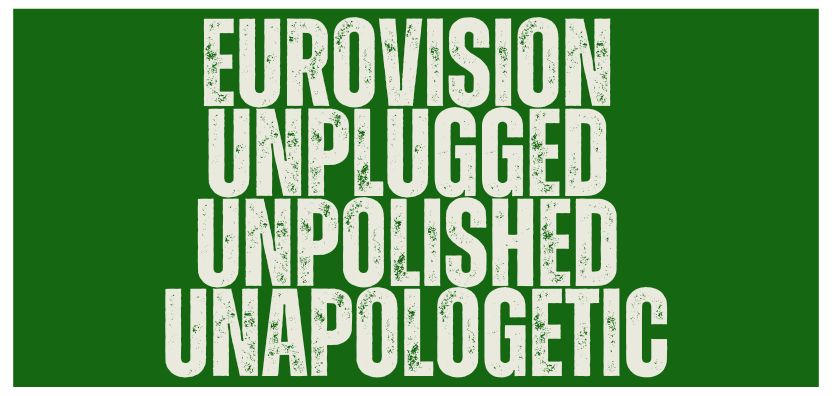
The final group of this year’s Eurovision Championships is set to be extremely tight to call and could well be considered this year’s group of death. Norway are the lowest ranked top seed in the tournament but their three wins mark an extremely impressive history at the contest. Ukraine’s success at Eurovision has come thick and fast, having only started competing in 2003 and to have won the competition twice whilst never failing to qualify out of a Semi Final. By contrast, Greece have had an extremely storied history at the contest going as far back as 1974 and so will be disappointed to have been placed in Pot 3 before the draw. They will at least be joined by the company of neighbours and perpetual points partners Cyprus as brothers turn fierce competitors. Only two more countries can join the 14 already qualified nations in the next round and the margins are so close that seedings don’t matter, it all comes down to the music!
Norway (1985 & 2009)
It might seem strange that Norway were ranked as a top seed given that they hold the record for the most times a country has finished last and the most times a country has scored nul points. But with Norwegian Eurovision, it is very much feast or famine and their two showcase entries are evidence of that. In 1985 in Gothenburg, Wind were extremely fancied to take the victory but there was always something about Bobbysocks and ‘La det swinge’ that felt special. Perhaps it was the matching outfits or the energy of the performers as they ran onto the stage of the Scandinavium or the sheer optimism in the face of several terrible results for their country at the contest. By 2009 in Moscow, Norway had shaken off their inconsistent reputation and were ready to take their place as one of the Scandinavian powerhouses and that’s exactly what Alexander Rybak and ‘Fairytale’ did with so much aplomb. Norwegian entries tend to be either energetic, charismatic bangers or self-reflective dark ballads and fortunately for the rest of us, we like all of it. So keep Norwegian Eurovision coming at the contest and keep it in the competition by voting for it!
Ukraine (2004 & 2016)
Wow have Ukraine come a long way at Eurovision in an extremely short space of time. Nobody saw their first win coming in Istanbul in 2004, ‘Wild Dances’ was always such a weird song and Ruslana wasn’t exactly the most traditional performer (even by Eurovision standards) but she romped to victory and set the tone for Ukraine’s efforts at Eurovision in the subsequent years. The next year, they sent a song that was mostly performed in Ukrainian and in the years after that, they sent Tina Karol, Verka Serduchka and Ani Lorak performers who can are divisive but also incredibly loved. As Ukraine have participated at Eurovision, they have also come to discover more and more about themselves as a country and the way they want to be represented to the rest of the world. That’s why Jamala’s victory in Stockholm in 2016 with ‘1944’ was whilst unexpected, an incredible breath of fresh air for Ukraine and the way its culture and identity are seen and celebrated throughout the continent. Ukraine don’t do normal, they do big drums, tambourines, sequined jackets, sand angels, hamster wheels and coffin pianos but oh my god, do we love them for it. I can’t wait to see what Ukraine present on the Eurovision stage in the years to come and if you want to keep them in the hunt to be crowned the best Eurovision country of all time, you have to vote for them now in their time of need.
Greece (2004 & 2005)
No country has arguably been treated kinder by the introduction of the Semi Finals and general expansion of the contest than Greece. Before 2004, Greece had had sporadic good results including top 5 finishes in 1977, 1992 and 2001. Then suddenly the Semi Finals were introduced and with them came the birth of the Greek legend at Eurovision that is Sakis Rouvas. His song ‘Shake It’ was most definitely born from the ‘Everyway That I Can’ school of Eurovision that had brought the contest to Istanbul in the first place and was an imagery of Greece as a Southern European nation of energy, fun and a little naughtiness. They pretty much copy-pasted that formula a year later in Kiev and so came their first Eurovision victory as Helena Paparizou expertly performed ‘My Number One’ and stormed her way to the Eurovision victory she missed out on four years earlier. In the years since, Greece have only failed to qualify for the Grand Final twice and have given us an amazing catalogue of Eurovision moments that basically follow the same style and pattern set by Sakis Rouvas many years earlier. Greece may now be in the process of trying to find their new Eurovision identity but they have enough history behind them to give them a fair chance of qualifying out of this group with the help of your votes.
Cyprus (2004 & 2018)
And finally we end this group (and our mini Istanbul 2004 retrospective) with Cyprus, a nation that in many ways have been searching for their identity at the contest since their first participation in 1981. Having struggled to out-Greek Greece and struggled to put across the sunny, Mediterranean island vibe more than Malta, Cyprus have tried a range of different paths to Eurovision success. Their two closest came in Istanbul in 2004 when 16-year old British-Cypriot Lisa Andreas sang her soft ballad ‘Stronger Every Minute’ to a great reception in the Abdi Ipekçi Arena and to 5th place on the scoreboard. Then in Lisbon in 2018, Greek singer Eleni Foureira came almost out of nowhere to come in a very respectable 2nd with ‘Fuego’. Sure, Cyprus have lost the momentum and identity that they looked like they were building but there’s a Cypriot entry out there for all tastes and Cyprus have already beaten out Croatia, Belarus, Georgia and Serbia & Montenegro to reach this point. If they are going to get any further however, they will definitely need your votes so make your voice heard now.
Please vote no later than July 28th when we will release the vote for the first knockout round clash between Israel and Russia





